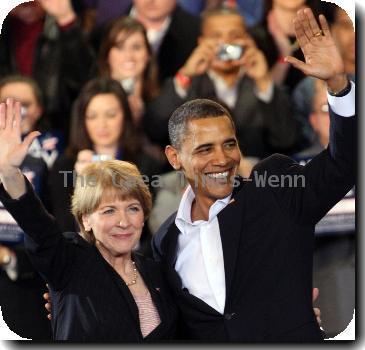Stocks edge higher after Federal Reserve issues more upbeat economic assessment
By Tim Paradis, APWednesday, January 27, 2010
Stocks strengthen on Fed’s economic assessment
NEW YORK — The stock market turned higher Wednesday after the Federal Reserve issued a more upbeat assessment of the economy.
Major stock indexes had fallen before the Fed released its statement following a two-day meeting on interest rates, then advanced as investors digested the central bank’s statement. Treasury prices reversed direction and fell after the statement as investors withdrew money from safe haven holdings.
The Fed said it believes that “economic activity has continued to strengthen” since its last meeting in December. However, the Fed did not repeat its assertion that the housing market is improving.
The Fed said it is leaving interest rates near zero, as expected, but also that Kansas City Federal Reserve President Thomas Hoenig has voted against the decision to keep rates low.
Jamie Cox of Harris Financial Group in Colonial Heights, Va., said Hoenig’s vote signals the central bank is moving closer to boosting rates.
“That means there are a couple of people who feel like that the economy is getting better at a nice rate that no longer warrants these exceptionally low rates,” he said.
Stocks had fallen ahead of the report as a 7.6 percent drop in sales of new homes in December brought concerns about the economy.
In late afternoon trading, the Dow Jones industrial average rose 44.14, or 0.4 percent, to 10,238.43. It had been down 40 ahead of the Fed’s announcement.
The Standard & Poor’s 500 index rose 5.43, or 0.5 percent, to 1,097.60, while the Nasdaq composite index rose 17.00, or 0.8 percent, to 2,220.73.
Stocks had closed lower five of the past seven days.
The yield on the benchmark 10-year Treasury note, which moves opposite its price, rose to 3.64 percent from 3.63 percent late Tuesday.
The dollar rose against most other major currencies, while gold fell.
Scott Marcouiller, senior equity market strategist Wells Fargo Advisors in St. Louis, said the Fed’s statement that it is slowing its purchase of mortgage-backed securities suggests the central bank believes the U.S. housing market is improving.
The Fed said it expects to complete the purchase of $1.25 trillion in agency mortgage-backed securities and about $175 billion in agency debt by the end of the first quarter.
“Once we settle in here, the market will like this,” he added. “This (statement) tells me that they’re comfortable with how the economy is progressing, even though they didn’t come right out and say that.”
Reassurance from the Fed couldn’t erase all of investors’ worries about the economy. Caterpillar Inc. hurt the Dow industrials after the equipment maker issued a cautious forecast. The stock fell $3.54, or 6.3 percent, to $52.31.
Technology stocks got a boost from Apple Inc. after the company announced a tablet-style computer that looks like a large iPhone. The stock rose $3.05, or 1.5 percent, to $208.99.
The Fed’s announcement was the latest event in Washington to command investors’ attention.
Treasury Secretary Timothy Geithner defended the government’s rescue last year of insurance giant American International Group Inc. in hearings on Capitol Hill. Analysts said the sometimes heated exchanges between Geithner and members of the House Committee on Oversight and Government Reform underscored concerns that Washington would be more assertive in its dealings with Wall Street.
Geithner oversaw the bailout as head of the Federal Reserve Bank of New York. Former Treasury Secretary Henry Paulson also testified.
Traders are also waiting to see whether Fed chairman Ben Bernanke, whose term ends Sunday, will win Senate approval for a second, four-year term.
The hearings came after President Barack Obama said last week that he would seek to limit trading by major financial institutions. That drew concerns from investors that bank profits would suffer.
Investors also will be looking to Obama’s State of the Union speech Wednesday evening for clues about his plans to tighten restrictions on banks.
In other trading, crude oil fell $1.48 to $73.23 per barrel on the New York Mercantile Exchange.
Three stocks fell for every two that rose on the New York Stock Exchange, where volume came to 978.8 million shares.
The Russell 2000 index of smaller companies rose 3.97, or 0.7 percent, to 616.13.
Overseas markets fell for a second straight day on concerns about China’s move to curb bank lending. The country is trying to prevent speculative bubbles and rapid inflation as its economy continues to grow quickly. A slowdown in growth in China could stunt a global economic recovery.
Japan’s Nikkei stock average fell 0.7 percent and Hong Kong’s Hang Seng lost 0.4 percent.
Britain’s FTSE 100 fell 1.1 percent, Germany’s DAX index lost 0.5 percent, and France’s CAC-40 dropped 1.2 percent.
Tags: Apple, Barack Obama, Commodity Markets, Debt And Bond Markets, Iphone, New York, North America, United States

